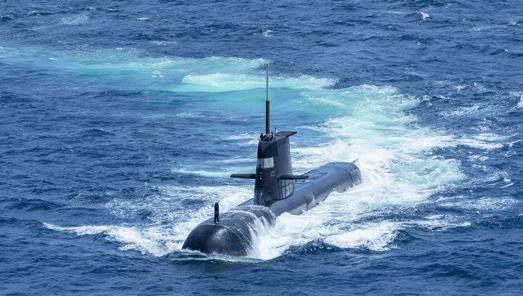The Predicament of AUKUS To Southeast Asian Nations
By Roy Anthony Rogers
The leaders of three countries—President Joe Biden of the United States, Prime Minister Boris Johnson of the United Kingdom and Prime Minister Scott Morrison of Australia declared the establishment of a military alliance known as AUKUS—which stands for Australia, UK and U.S.—on September 15. Among the consensus reached within AUKUS is the allocation of nuclear-powered submarine technology from the U.S. to Australia. In addition, AUKUS also covers support in terms of cyber capability, artificial intelligence, quantum technology and underwater aptitude. However, the main focus of this alliance lies on the growth of military proficiency. As a result, Australia will acquire long-range attack capacities for both its air and naval forces.

From the announcement of AUKUS, even though the U.S., the UK and Australia did not mention they would be targeting any country in particular, it became rather obvious that one of the new alliances main objectives would be to balance Chinas influence in the Indo-Pacific region. Many presume this purpose will see an increase in regional military activity. Depending on which party has majority support, reactions thus far have varied. At the same time, many feel this alliance may lead to a nuclear arms race in the South China Sea. Therefore, it is expected for Association of Southeast Asian Nations (ASEAN) member countries to wonder whether they should have deeper concerns about AUKUS.
The Australian concern
The matter of whether or not AUKUS will allow Australia to have a flotilla of nuclear-powered submarines certainly requires further clarification. For now, Australia has only a fleet of attack-class diesel-powered submarines, equipped with conventional weapons meant for sinking enemy ships during wartime. The difference between nuclear-powered and diesel-powered submarines is that the former is capable of resting on the sea floor for longer periods of time and can cover a wider area. The latter, then, requires intermittent diesel refueling. Apart from attackclass submarines, the ballistic-class sub is capable of carrying nuclear weapons.
While Australia welcomes AUKUS, its residents should also be aware of the long-term implications. To maintain the smooth operating of all atomic-powered submarine fleet, Australia must develop its own nuclear industry. There is no denying that despite Australias expertise in this specific field, the country remains limited to medical, economic and energy affairs; its lacking the military expertise required to engage in nuclear energy development. In addition to sponsoring atomic energy, one obligatory (radioactive) source substance is that of enriched uranium. The question beckons, to what extent is Australia able to obtain uranium to meet the needs of a military nuclear industry?

